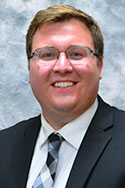Obesity: A Big Problem
by Theo Solseng
November 2022
As with many medical conditions, obesity, caused by an excess amount of body fat, is complicated. Conversations about obesity and weight loss tend to make people feel judged and uncomfortable. So why do doctors insist on talking about it? Because obesity places people at risk for developing several diseases that can impact quality of life and lead to early death.
 Obesity is linked to
cardiovascular diseases like heart attack and stroke.
Diabetes is another obesity-linked disease that can cause
problems like vision loss, kidney failure, and limb
amputations. Several cancers including liver, colorectal,
and breast cancer also have connections to obesity.
Obesity is linked to
cardiovascular diseases like heart attack and stroke.
Diabetes is another obesity-linked disease that can cause
problems like vision loss, kidney failure, and limb
amputations. Several cancers including liver, colorectal,
and breast cancer also have connections to obesity.
Setting that frightening list of diseases linked to obesity aside, it's important to recognize what can be done to both prevent and overcome obesity. A lifestyle with a healthy diet and exercise is the most obvious, most cliché, and, truthfully, the most important thing that can be done to prevent obesity and the diseases associated with it. That is so much easier said than done. Some helpful suggestions from the Centers for Disease Control and Prevention include adding fruits and vegetables to meals or making even a short 5 or 10-minute walk part of a daily routine.
Another strategy that often gets overlooked in making healthy choices is drinks. Sodas, energy drinks, sports drinks, teas, and even fruit juices can have lots of added sugars that make them unhealthier than they may seem.
In addition to specific changes to diet and exercise routines, it's also important to think about healthy lifestyle changes as just many small healthy changes over time rather than one big immediate change. For example, one approach to weight loss used by dietitians is behavioral weight loss counseling. This is an approach that gradually helps people change daily habits by rethinking the "why" about eating.
It might come as a surprise that the military offers a healthy weight focus. It offers a "hunger scale" approach to weight loss. This idea coaches their members to recognize personal signs of hunger, satisfaction, and fullness to avoid both over- and under-eating.
Conversations about weight goals with a primary care doctor can be helpful in assessing progress and identifying helpful resources. Certain medications can also be helpful for some individuals, although it is important to note that doctors' opinions vary on this subject.
With obesity impacting an estimated 30% of Stutsman County's residents and negatively impacting not only their quality of life, but shortening their lifespan, conversations about obesity and weight need to happen. Although those conversations can be challenging, several strategies exist for achieving a healthier lifestyle. It's important to try to set aside discouragement and be open to asking for help when it comes to losing weight and getting healthier.
This article also appeared in the November 27, 2022 issue of the Jamestown Sun.
About the Author
 Theoren Solseng is a third-year
medical student at the University of North Dakota School
of Medicine & Health Sciences. He was selected as the
Jamestown participant for the school's ROME program, or
Rural Opportunities in Medical Education. Because the
program includes teaching student doctors about the
importance of how rural newspapers can deliver health
information, he has written this column for his ROME
community. The information is not for diagnosis or
treatment and should not be used in place of previous
medical advice provided by a licensed practitioner.
Theoren Solseng is a third-year
medical student at the University of North Dakota School
of Medicine & Health Sciences. He was selected as the
Jamestown participant for the school's ROME program, or
Rural Opportunities in Medical Education. Because the
program includes teaching student doctors about the
importance of how rural newspapers can deliver health
information, he has written this column for his ROME
community. The information is not for diagnosis or
treatment and should not be used in place of previous
medical advice provided by a licensed practitioner.
